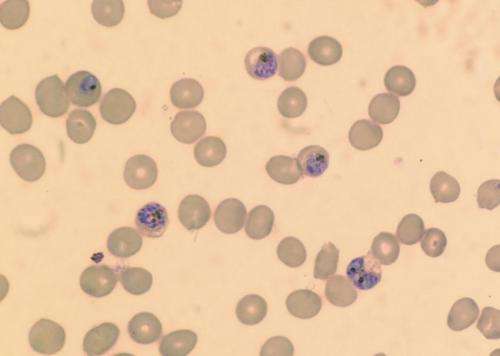More deadly than Ebola: Clemson biologist fights malaria parasite

A team of molecular biologists, jointly led by Clemson University professor Jim Morris, was awarded a $151,121 grant from the National Institutes of Health to identify new compounds with anti-malarial activity for a deadly parasite species that kills hundreds of thousands of people each year.
"Malaria is a global health concern, infecting more than 200 million people each year," said Morris. "Malaria is caused by four species of Plasmodium parasites, which are spread to people through the bites of infected mosquitoes. The P. falciparum parasite species is responsible for the most mortality on an annual basis."
According to the World Health Organization, there were about 207 million cases of malaria in 2012 and an estimated 627,000 deaths. The organization states that most deaths occur among children living in Africa where a child dies every minute from the disease.
"Sugar metabolism is critical to the success of the most virulent species of the parasite, P. falciparum," Morris says. "The goal of our application is to identify inhibitor probes of the first enzyme in sugar metabolism through a high throughput screening campaign in collaboration with the National Center for Advancing Translational Sciences (NCATS)."
The researchers will systematically confirm the inhibitory activity of hits using a series of standardized secondary confirmation assays with hits being scored for anti-parasitic activity. Then, through a repetition approach that weighs activity against enzyme and parasite based on structural modifications, a probe will be identified as a potent inhibitor of the parasite.
Provided by Clemson University